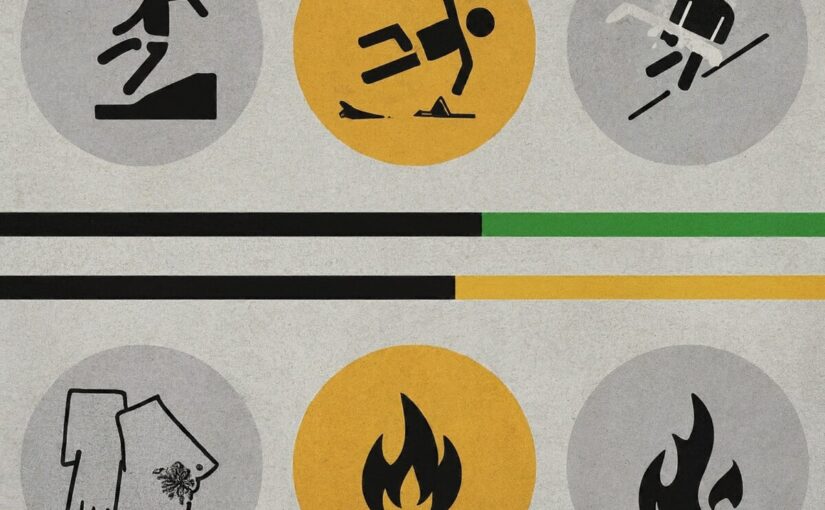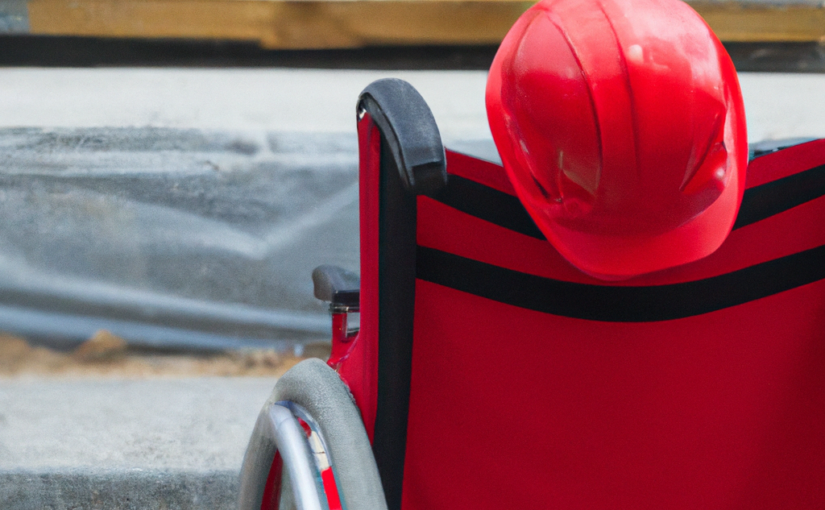Reading Time: 4 minutesWorkers compensation death benefits are critical to families in the event of an unexpected tragedy. Many people may not be aware that these benefits exist, and how to qualify for them. In this article, we will discuss what death benefits are, how to qualify, and how to access them when needed.
Understanding Workers Compensation Death Benefits: Qualifications and Accessing Financial Support for Families
Understanding Death Benefits
When a worker is fatally injured on the job, his or her family is able to receive workers’ comp death benefits. These benefits are designed to help the family of the deceased pay for the funeral and burial expenses, as well as provide financial support for the family left behind.
In most cases, the workers’ compensation death benefits are paid out in one lump sum to the family. The amount of money received depends on the specifics of the case, as well as the state in which the death occurred. In some cases, the benefits could be a significant amount of money, depending on the individual’s wages and how long they had been employed.
Types of Death Benefits
Workers’ compensation death benefits can be divided into two main types:
- Dependency benefits – This type of benefit is paid to the family and other dependents of the deceased worker. It is intended to cover the lost wages and provide financial support to the dependents. The amount of money received can vary depending on the state, but generally the family will receive a percentage of the deceased’s wages.
- Funeral and burial expenses – This type of benefit is intended to cover the costs of the funeral and burial, as well as other related expenses. The amount of money received depends on the state, but is usually the same as the amount of benefits received for dependency.
Qualifying for Death Benefits
In order to qualify for workers’ compensation death benefits, the death must have occurred as a direct result of a work-related injury or illness. If the death occurred due to a pre-existing condition, or was not related to the employee’s job in any way, the family may not be eligible for death benefits.
In addition, the deceased worker must have had current workers’ compensation coverage in order for the family to qualify for benefits. If the worker was not covered, the family will not be eligible to receive benefits.
To apply for death benefits, the family must contact the workers’ compensation insurer of the deceased worker. Usually, the insurer will require proof of the worker’s death, such as a death certificate, and proof of dependency, such as a marriage certificate or birth certificate. The insurer will also require proof of the worker’s wages, such as a pay stub. Once the application is submitted, the insurer will review the case and determine if the family is eligible for death benefits.
Workers compensation death benefits are a vital resource for families in the event of an unexpected tragedy. It is important to understand what death benefits are and how to qualify in order to ensure the family receives the financial support they need. If you or someone you know has been affected by a work-related death, contact a lawyer to learn more about your rights and how to receive death benefits. Call 844–682‑0999 for more information.
FAQ
Question 1: What is a workers’ compensation death benefit?
Answer: A workers’ compensation death benefit is a payment made to the surviving family members of a worker who has died as a result of a work-related injury or illness.
Question 2: Who is eligible to receive a workers’ compensation death benefit?
Answer: Generally, the surviving spouse, children, or other dependents of the deceased worker are eligible to receive a workers’ compensation death benefit.
Question 3: How much money is available through a workers’ compensation death benefit?
Answer: The amount of money available through a workers’ compensation death benefit varies from state to state. Generally, the benefit is a percentage of the deceased worker’s average weekly wage, and the maximum amount is set by the state.
Question 4: How long does it take to receive a workers’ compensation death benefit?
Answer: The length of time it takes to receive a workers’ compensation death benefit depends on the state and the circumstances of the claim. Generally, the process can take several weeks or months.
Question 5: What documentation is required to receive a workers’ compensation death benefit?
Answer: Generally, the surviving family members must provide documentation such as the deceased worker’s death certificate, proof of their relationship to the deceased worker, and proof of their financial need.
Question 6: Is there a time limit to file a claim for a workers’ compensation death benefit?
Answer: Yes, there is a time limit to file a claim for a workers’ compensation death benefit. Generally, the claim must be filed within one year of the worker’s death.
Question 7: What happens if the claim for a workers’ compensation death benefit is denied?
Answer: If the claim for a workers’ compensation death benefit is denied, the surviving family members may appeal the decision. Generally, the appeal must be filed within a certain time period, which varies from state to state.
Question 8: Are there any other benefits available to the surviving family members of a deceased worker?
Answer: Yes, there may be other benefits available to the surviving family members of a deceased worker, such as Social Security survivor benefits or life insurance benefits.
Question 9: Are there any resources available to help surviving family members understand their rights and options?
Answer: Yes, there are resources available to help surviving family members understand their rights and options. The state workers’ compensation board or a local legal aid office can provide information and assistance.
Question 10: Is there any way to expedite the process of filing a claim for a workers’ compensation death benefit?
Answer: Yes, there are steps that can be taken to expedite the process of filing a claim for a workers’ compensation death benefit. It is important to gather all the necessary documentation and to submit the claim as soon as possible.
Excerpt
In the event of an unexpected tragedy, Workers Compensation Death Benefits can be critical to families. These benefits provide financial assistance to cover funeral costs, lost wages, and other expenses. It is important to be aware of these benefits and how to access them.
Additional Questions
- Workers compensation death benefits
- Workers compensation death benefits eligibility
- How to qualify for workers’ compensation death benefits
- How to apply for workers’ compensation death benefits
- Death benefits for deceased workers
Related Readings:
- What Is a Workers’ Compensation Death Benefit?
- Understanding Workers’ Compensation Benefits
- How to File a Workers’ Compensation Claim
- Who Is Covered Under Workers’ Compensation?
- What Are the Benefits of Workers’ Compensation Insurance?
#workerscompensation, #deathbenefits,







